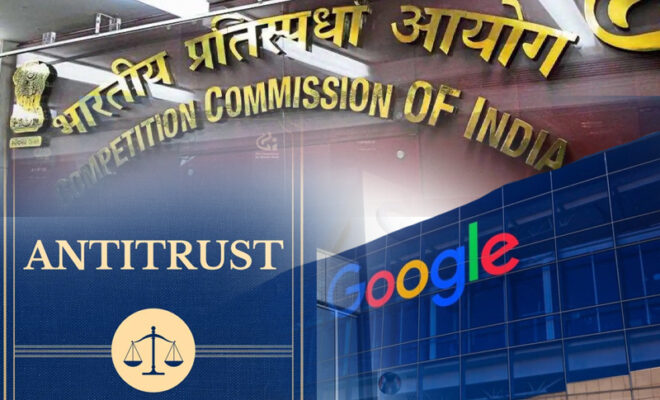Why Has CCI Imposed ₹1,338 Crore Penalty On Google?

After MMT-Go, no CCI has also imposed a fine of ₹1,337.78 Crore on Google. But do you know why CCI slapped such a big penalty on this giant IT company?
Google received a fine on Thursday from the Indian Competition Commission (CCI).
Alphabet’s Google has been hit with a fine totaling Rs 1,337.76 crore for allegedly engaging in anti-competitive behavior, particularly with regard to Android mobile devices.
As a result, in accordance with the terms of Section 27 of the Act, the Commission fined Google and issued a cease-and-desist order to stop engaging in anti-competitive behavior that was determined to be in violation of Section 4 of the Act.
Android is an open-source mobile operating system that is put in smartphones, tablets, and other similar devices by Original Equipment Manufacturers (OEMs).
The CCI has instructed Google not to provide any incentives to smartphone manufacturers for only carrying its search services in the detailed order.
Additionally, it has requested that the business give customers the option of selecting their preferred search engine at all search entry points, particularly during device setup.
It has also requested that the online business stop using unfair business methods.
Google, although not responding to media inquiries, has already been the subject of various stories alleging unethical corporate practices.
As a result of this fine, the corporation is now required to permit creators of other app shops to distribute their stores via Play Store.
According to the Commission (CCI), the markets should be permitted to compete on the basis of merit, and it is the responsibility of the dominant companies (in this example, Google) to ensure that their behavior does not impede this competition on the basis of merit.
Because of the agreements mentioned above, Google was able to guarantee that customers would continue to use its search services on mobile devices, which allowed its ad income to expand continuously.
For the uninitiated, CCI requested a thorough investigation into the situation in April 2019 in response to many complaints received from users of Android-based smartphones.
The Mobile Application Distribution Agreement (MADA) and Anti Fragmentation Agreement were the focal points of the charges of unfair business practices at that time (AFA).
In addition to all of this, CCI has also requested that Google change its behavior within a specific time frame.



